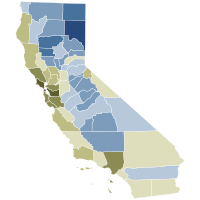
Photo from wikipedia
People are more likely to make choices themselves than delegate to an agent, even when it may not be the most optimal decision based on a cost-benefit analysis. Previous studies… Click to show full abstract
People are more likely to make choices themselves than delegate to an agent, even when it may not be the most optimal decision based on a cost-benefit analysis. Previous studies have demonstrated that retaining authority and controllability might be the primary reason for preferring self-choice. The current study asks whether impairment of controllability associated with self-choice can increase the rate of delegation and whether there are self-other discrepancies in self-choice preference. In three studies, we directly manipulated participants' controllability associated with choice through literal instructions (experiment 1) and visual presentation (experiments 2 and 3). We found that participants showed a robust propensity to under-delegate even when they were aware of their impaired controllability associated with self-choice. Moreover, only 40% impairment of controllability (but not 20%) can decrease the propensity to under-delegate. This trend differed between decision-for-self and decision-for-other. These findings suggest that pursuing a sense of control cannot fully explain self-choice preference and appears to occur equally in decisions for oneself as well as for others.
Journal Title: Acta psychologica
Year Published: 2021
Link to full text (if available)
Share on Social Media: Sign Up to like & get
recommendations!